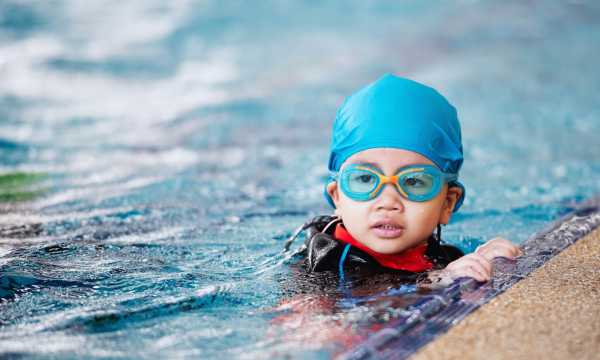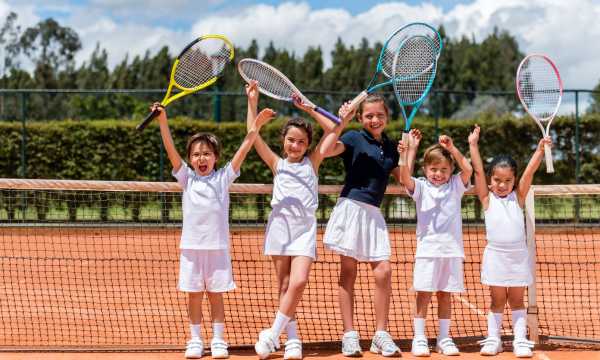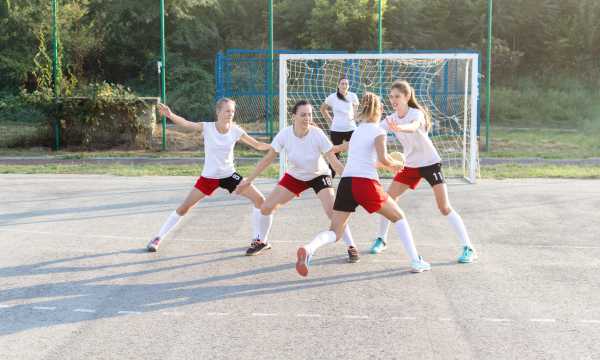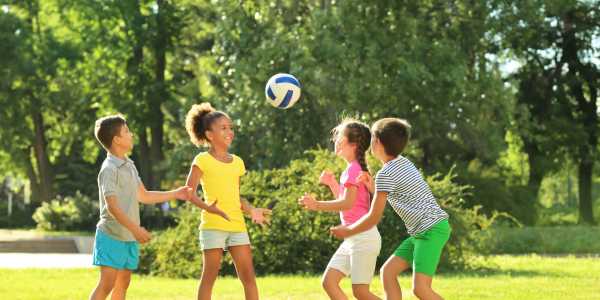Sports for kids: Activity Tips for Each Age
Sports for kids are the foundation for healthy development and fun from an early age.
Finding the ideal activity for little ones might seem like a challenge, right? But sports for kids are more than just fun; they are essential for physical, mental, and social growth.
By choosing the right activity, it’s possible to encourage a healthy lifestyle from an early age. In this article, discover how different sports can benefit each stage of child development and help your child find the joy of moving!
1.Sports for kids Up to 5 Years Old
For kids in this age group, the focus should be on activities that encourage a love for movement in a playful and natural way.
The goal here isn’t competition, but discovering the body’s possibilities and beginning healthy habits.
Below are some of the most recommended activities for this age group, which combine fun and learning:
- Swimming: Besides being fun, this activity improves coordination, breathing, and confidence in the water, making it one of the top recommendations for this age.
- Dance: With various rhythms, it helps develop a sense of rhythm, promotes body expression, and boosts creativity.
- Outdoor play: Running, jumping, and exploring open spaces are natural ways to exercise both the body and the mind.
- Kids yoga: Yes, it exists! It helps improve balance, concentration, and even provides moments of relaxation.

Swimming for Children (Source Canva)
Parents and caregivers play a crucial role at this stage, as their active participation in activities not only strengthens emotional bonds but also encourages children to feel more secure and motivated to explore the world of sports.
2.Sports for Kids Aged 6 to 10: Beginning Socialization
With more advanced cognitive development, children in this age group can understand rules, interact in groups, and work in teams.
It’s the ideal phase to introduce more structured sports, where they learn about discipline, respect, and cooperation.
Here are some of the most recommended sports for this age group, which help in the social and physical development of children:
- Soccer and basketball: These sports help develop motor skills, promote social interaction, and teach the importance of teamwork.
- Artistic gymnastics: Excellent for children who love physical challenges, helping develop flexibility, strength, and balance.
- Martial arts: Options like judo and taekwondo teach discipline, self-control, and boost children’s confidence.
- Tennis or badminton: Individual sports that stimulate concentration, strategy, and quick reflexes.

Sport for Children: Tennis (Source Canva)
Another important point is to allow children to try different sports before committing to a specific activity. This allows them to discover their preferences and talents while keeping enthusiasm for sports alive.
3.Sports for Kids Aged 11 to 14: Skill Development
At this stage, children become more aware of their abilities and begin to show preferences for specific activities.
It’s also a crucial period for physical, emotional, and social strengthening, as many young people start considering competing in sports more seriously.
Here are some sports options ideal for helping young people strengthen their skills and prepare for more intense challenges:
- Volleyball and Handball: Team sports that work on motor coordination, communication, and strategy.
- Athletics: Sports like running, jumping, and throwing help improve endurance, strength, and focus.
- Tennis: Teaches quick reflexes, improves concentration, and develops the ability to handle pressure in individual games.
- Aquatic Sports: Like water polo and synchronized swimming, they are excellent for those already comfortable in the water and looking for new experiences.

Handball-Children’s Sport (Source Canva)
Professional guidance at this stage is essential to help prevent injuries and ensure training is suitable for each child’s age and development.
4.How to Balance Sports with Other Activities
While sports for kids are extremely beneficial, it’s essential to find a balance with other important areas of life, such as studies, leisure, and family time.
Below are some strategies:
- Time organization: Creating a routine that includes time for training, studies, and rest is essential to avoid overload.
- Focus on rest: Ensuring kids get at least 8 hours of sleep per night is crucial for physical and mental performance.
- Value leisure: Reserving free time for play and relaxation without pressure helps maintain motivation for sports.
- Constant dialogue: Talking with children about their feelings toward activities prevents excessive pressure and ensures they continue to have fun.
5.The Importance of Sports in Child Development
Sports for kids play a crucial role in their overall development. It’s not just about keeping the body active, but also about stimulating cognitive, social, and emotional skills.
In addition, they help maintain a balanced weight from childhood and promote a healthier lifestyle in adulthood.
See how they impact various areas of child development:
- Physical: They help with growth, strengthen bones and muscles, and improve motor coordination, essential for development.
- Social: They teach the importance of teamwork, cooperation, and respecting rules, preparing kids for social interactions.
- Emotional: They promote self-confidence, teach how to deal with frustration, and reduce stress and anxiety levels.
Additionally, regular sports practice encourages the creation of a healthy routine, improves mood, and even boosts school performance, as active children have better concentration and more energy to learn.
6.Is There an Ideal Age for a Child to Practice Sports?
There is no single age that works for all children, but introducing them to sports can happen as early as possible in a fun and enjoyable way.
The earlier a child is introduced to physical activities, the greater the benefit to their physical and emotional development.
Practicing sports from an early age helps build a solid foundation for healthy habits that can last a lifetime.
Remember that each child has their own development pace, and respecting their abilities and limitations is key to making the experience positive.
The most important thing is to observe how they react to each activity and adapt the approach as needed.
Conclusion
Sports for kids play a crucial role in the complete development of children, bringing benefits that go beyond physical health. In addition to promoting growth and motor coordination, they help build emotional and social skills, which are essential for life.
It’s important to mention that there’s no one-size-fits-all formula when it comes to choosing the ideal activity for each child. The most important thing is to observe their preferences, respect their pace, and create opportunities for them to discover the joy of moving.
Therefore, the key is to promote a positive and discovery-filled experience, with activities that adapt to the different stages of child development. By doing so, you’ll be providing your child not only a pastime but a foundation for healthy, lasting habits.
 Blood Pressure: Tips for a Healthier Life
Blood Pressure: Tips for a Healthier Life
Have you ever reflected on the crucial role of blood pressure in your overall well-being? Blood pressure, […]
More Top 5 Football Clubs on the Rise in 2024
Top 5 Football Clubs on the Rise in 2024
Discover the five football clubs that are on the rise in 2024, dominating the fields with spectacular […]
More Diabetes Diets: What to Eat and Avoid
Diabetes Diets: What to Eat and Avoid
Diabetes diets: What to eat and what to avoid. Stay on top of everything in today’s post. […]
More